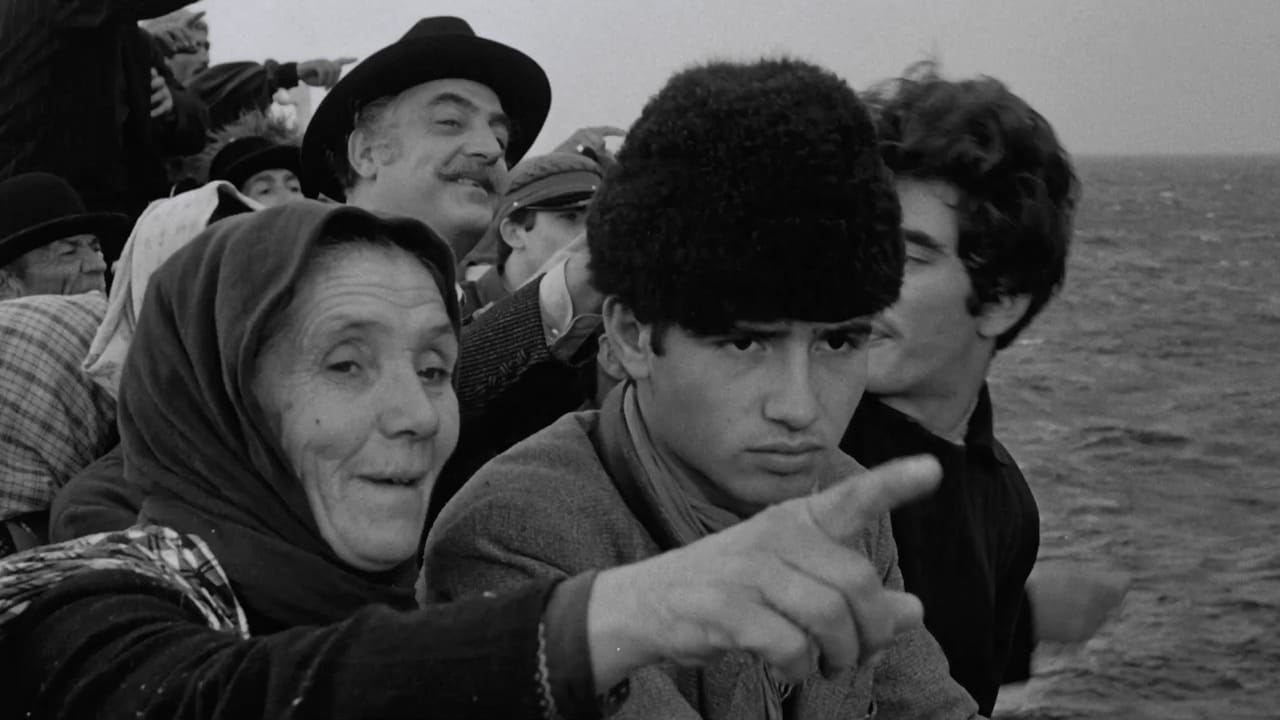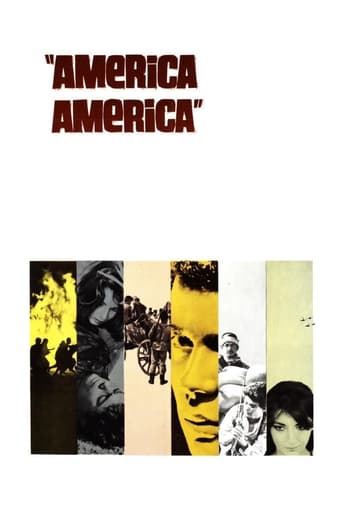deickos
This film is the best of Kazan's because it is so personal and there is 100% commitment. The method is worthy of the story: this epic of salvation is intertwined with many smaller stories that all have an essential contribution to the moral of the film.
We watch scenes of the Armenian Genocide alongside the main story, while the selection of characters is never left to chance - everyone stands for something, everyone represents a certain moral value that is constituent of the final outcome.
While the journey of the hero looks unique, it is actually only one of the thousands of those who managed to escape the Turkish oppression at the time.
PWNYCNY
What we have here is a three-hour movie that required more editing. Just because the movie is an epic-length feature does not make it an epic, and this movie is not an epic. Ostensibly, it's about a young man, a Greek-Turk, struggling to emigrate to the United States but it's really about the director, using the movie as a pretext to tell his own story, a story that is not especially interesting. First, the director demonstrates his bias toward Turks, loading up the movie with stereotypical images of Turks as bullies, oppressors and petty-autocrats. Then, stretching plausibility to the limit, the director shows the protagonist, who is literally dirt poor, having lost whatever meager belongings he had to thieves and prostitutes, getting involved with the family of a well-to-do merchant and then, in what can only be ascribed to a bout of temporary insanity, rejecting the possibility of marrying into the family in order to go to America. It is one thing to emigrate because you're denied opportunity; it is another thing entirely to emigrate while opportunity is knocking on the door and in this movie not only is opportunity knocking for this young man, it's knocking loud and clear. Then he winds up having an affair with the married wife of a rich Armenian-American, a part of the movie which has some dramatic moments due to the excellent acting of Katharine Balfour, who gives the best performance in the movie. And finally he makes it to America, by appropriating a dead man's name, and then is shown shining shoes in New York City, with a big smile on his face, while the director, in an off-screen monologue, explains that over a period of years the young man manages to bring over the rest of his family. The scenes depicting his actual arrival to the United States are anticlimactic, featuring one brief glimpse of the Statue of Liberty in a wide angle shot; little drama there. Manhattan is depicted as a series of lights flickering in the distance; not much drama there either. Given the main character's obsession with getting to America, these scenes are a let down. Then there are the scenes set on Ellis Island which the director uses to impugn the American immigration officials who are portrayed as being arrogant and on the take. This alone should have been enough to convince the young man to take the next boat back to Turkey, beg his fiancé's forgiveness, marry her, acquire his father-in-law's business, make a lot of money, and possibly buy a political office, if not for himself then for one of his relatives. But he does not do it, instead settling to become a shoe shiner in New York City. The movie character Forest Gump said: "Stupid is as stupid does." Gump must have watched this movie too. How the young man, this shoe shiner, gets the money to afford to bring over the rest of his family is not explained, which is probably for the best. The interior cinematography is excellent, the exteriors showing mountains and villages almost stock footage; the actor who plays the protagonist gives a credible performance, and the rest of the cast does good work. It's the story, and the director's apparent need to focus on himself, that brings this movie down.
Petros
Elia Kazan has been often criticized about his personal choices in some parts of life that are now history. It is understandable that this kind of criticism -though totally justified in some cases- should not be the lens through which we will judge his works of art. In particular, "America America" can only be described as a very well directed film "carrying" many of the truths of multicultural Asia Minor during the last decades of Ottoman Empire. It accurately depicts the contradiction between cosmopolitan Constantinople and the more "oriental" villages of Asia Minor. The dream of a new life in a new and free land like America is excellently presented in the movie together with the strong bonds of the members of a family and the social status of Greeks, Turks and Armenians at that region back then. The fact that Elia Kazan put a great deal of himself in the movie makes it more worth-seeing. Thank you for reading.
neithernor2000
"America, America" deserves a modern audience but is almost impossible to find. I just viewed a VHS version obtained through the inter-library loan program. I live in Virginia and it was sent down from Alaska!This film should be required viewing for anyone interested in understanding why the huddled masses flocked to America but it is highly personalized and focused on a young man from a middle class Greek family with a big dream that seems impossible to fulfill. Another reviewer correctly likened Stathis Giallelis to a young Brando for his overpowering individuality, determination, and (for Turkish society in 1900) swagger. But when his character Stavros grows a mustache, he becomes a young Omar Sharif. AA is brilliantly written and directed by Elia Kazan.

